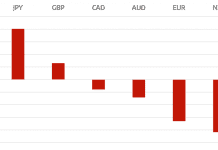Let’s face facts; there’s plenty of incentives to become a forex trader in the modern age. After all, this market sees an estimated $6.6 trillion traded globally every single day, while its cumulative value is more than 2.5-times larger than the world’s GDP
However, while you may want to participate in this market, the question that remains is how you can achieve this objective? While you can make forex trading your full-time career, for example, it’s also easier than ever to operate successfully on a part-time basis.
But what are the pros and cons of each option, and which one is right for you in the current economic climate?
What are the Pros and Cons of Part-time Trading?
Thanks to the rise of online trading platforms and apps such as the MetaTrader 4, many of the market’s historic barriers to entry have been removed during the digital age.
This has certainly helped to incentivise part-time trading, as even relatively inexperienced traders can execute orders in real-time and benefit from the same analytical tools and technical indicators that professionals have come to rely on.
This is a huge boon, especially as it enables part-time traders to access the global marketplace and launch their career while simultaneously maintaining a full-time job.
This immediately takes the pressure of part-time traders, while enabling them to scale their efforts in line with growth and experience.
Of course, there are risks with part-time forex trading, as individuals may struggle to find the time to build the knowledge required to operate successfully over time. This can cause reckless and ill-judge trades, while preventing individuals from understanding the role that determinism plays in underlying price movements.
This is something that doesn’t usually affect professional traders, who have usually undertaken structured courses and seminars that teach the fundamentals.
However, professional traders and investors are also completely at the mercy of an incredibly volatile and highly leveraged space, and one where sudden and unexpected price movements can cause individuals to lose considerably more than their initial deposit amount.
How to Choose the Right Option for You
Ultimately, if you’re going to make forex trading your full time job, it’s imperative that you devote a great deal of time to learning and understanding the fundamentals.
Similarly, you’ll have to ensure that you treat your trades and portfolio like a business, particularly in terms of scaling your efforts organically, setting profit targets and taking proactive steps to manage your risk.
If you want to become a part-time trader, it’s absolutely crucial that you start small and trade no more than two currency pairs when you first enter the marketplace.
A key aspect of this is identifying the right pairs to trade, and we’d recommend that you start by trading major pairings before looking to diversify your interests over time.
Ultimately, part-time trading is ideal if you already have an established career and simply want to increase your earning potential, while it also offers value for anyone with limited time and a host of other daily tasks to perform.
HedgeThink.com is the fund industry’s leading news, research and analysis source for individual and institutional accredited investors and professionals





































